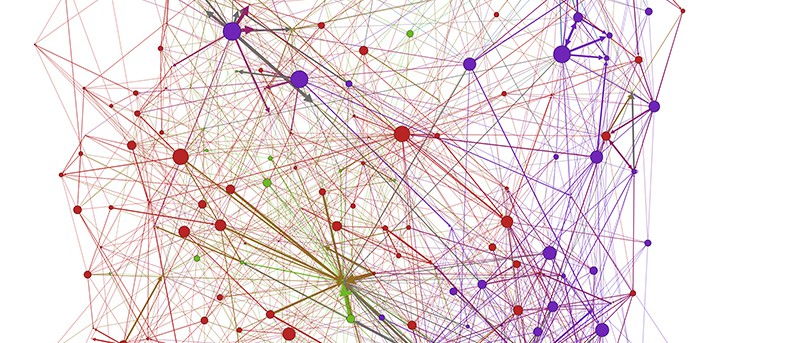The University of Nottingham
 Exchange online
Exchange online
Research Exchange
Communicating #climatechange on Twitter

The Intergovernmental Panel on Climate Change’s (IPCC) report published last September was the first comprehensive assessment of physical climate science in six years. As such, it was a significant event within the often contentious climate change debate.
Researchers from The University of Nottingham have analysed how climate change and the report were discussed on Twitter around the time of its publication.
Climate change on Twitter: topics, communities and conversations about the 2013 IPCC Working Group 1 report is published today (Wednesday 9 April) in journal PLOS ONE.
The full report can be viewed online:http://dx.plos.org/10.1371/journal.pone.0094785
Making Science Public
Nottingham’s Dr Warren Pearce and Professor Brigitte Nerlich carried out the research as part of Making Science Public, a five-year research programme funded by the Leverhulme Trust looking at the challenges and opportunities arising from more public debate of science — and how this happens.
The research was a collaboration with Drs Iina Hellsten and Kim Holmberg from VU University Amsterdam, supported by an Open Research Area grant from the Economic and Social Research Council UK and The Netherlands Organisation for Scientific Research.
The research team looked at the hashtags most frequently used within tweets about the IPCC (including #IPCC and #climate), and what these hashtags tell us about the topics people associate with climate change. They also explored the connections formed between people using Twitter and how these formed distinct online communities.
Public debate on Twitter
Dr Pearce, Research Fellow in the School of Sociology and Social Policy, believes that the research underlines the importance of Twitter in public debate. He said: “The paper provides an insight into how a very carefully put together document — the IPCC WG1 report — is discussed, interpreted and re-interpreted once it becomes public property.
“While the IPCC presents itself as the definitive state-of-the-science, the variety of hashtags used illustrate how scientists inevitably lose some control of its meaning after publication. In other words, while climate change as a public issue will always involve science, the public debate is — and always be — political. The volume of tweets we found about the IPCC, particularly the huge spike on the date of publication, illustrate how vital Twitter is as a means of understanding public debate.”
The analysis also found tweeters largely discussed the report with people who broadly shared their views — whatever side of the debate they belonged to. Dr Pearce believes this is partly due to the restrictions of the channel limiting tweets to 140 characters.
He said: “It’s unsurprising that we seek out those who share a broadly similar worldview, especially in Twitter discussions where space is very limited. We show that this behaviour is prevalent on both sides of the debate.”
However, the ‘Twitter maps’ produced as part of the research, also show a tightly interconnected group of largely UK tweeters where there was intense discussion between opposing sides in the climate change debate. This was not the case in other countries.
Dr Pearce wishes to research this development in the climate change debate on Twitter further in order to assess its usefulness. He said: “This will be subject of further research, but there are particular individuals on both sides who are actively seeking greater engagement with the other. These include scientists, bloggers and members of the public.”
Making Science Public blog
You can read a blog post about the paper on the Making Science Public blog.
Tags: climate change, climate change debate, Dr Warren Pearce, Making Science Public, Professor Brigitte Nerlich, science debate, social media, twitter
Leave a Reply
Other

Top prize for quantum physicist
A University of Nottingham physicist has won a prestigious medal from the Institute of Physics for […]

Zero carbon HOUSE designed and built by students comes home
Design and construct a low cost, zero carbon, family starter home, transport it to Spain, build […]